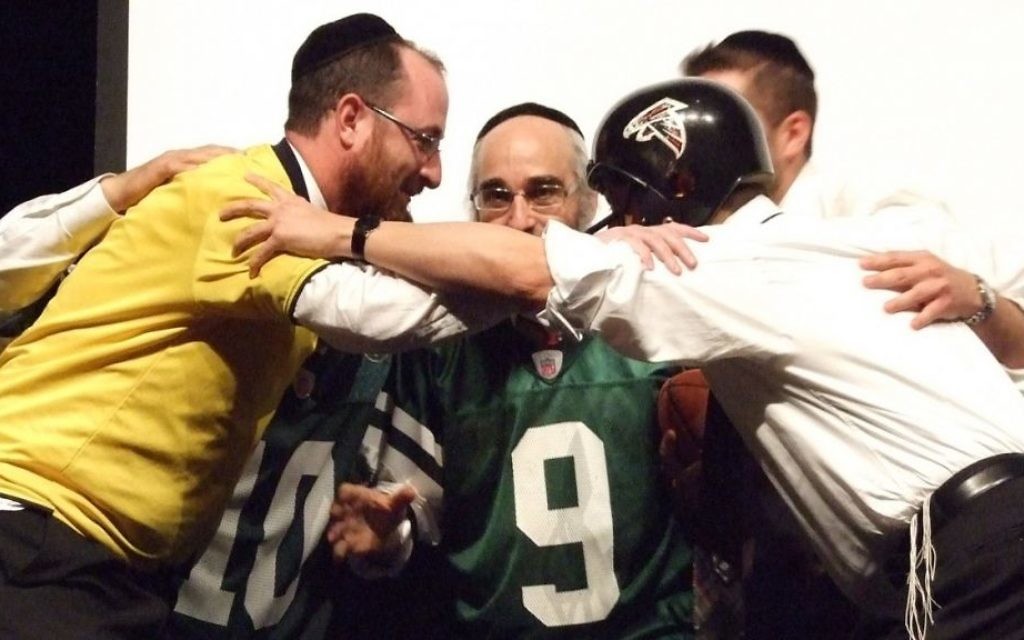Even Jets Fans Crave Togetherness
Rabbi Mordechai Blecher, a native of Australia now living close to MetLife Stadium in New Jersey, doesn’t care for the New York Jets or the NFL in general, so attending a Jets game in cold weather gave him plenty of time to ponder one of the universe’s great questions:
Why does anyone root for the Jets?

More important, as Rabbi Blecher explained during the Atlanta Scholars Kollel’s annual networking event, he recognized that Jets fans and other football fans who prefer a stadium with 90,000 of their closest friends over the comfort, ease and cheap beer of a living room sofa in front of a high-def big screen are expressing a basic human need for togetherness.
Get The AJT Newsletter by email and never miss our top stories Free Sign Up
“We all want to feel part of this great unity,” Rabbi Blecher told about 500 people at the unity-themed event Wednesday night, Sept. 2, at Atlanta Jewish Academy.
“We just want to encourage people to be better connected,” said Rabbi David Silverman, the kollel’s dean.
Rabbi Blecher said the need for connection and oneness stems from the act of creation, which separated us from G-d and left us with the intense desire to regain unity with the Creator. He said the Torah starts with the second Hebrew letter, bet, in the word Bereshit to show that division and present us with the task of pulling the world together and moving from bet, representing 2, to aleph, representing 1.
“That’s why we are here on this planet,” Rabbi Blecher said. “We are here to assemble that jigsaw puzzle.”
He said unity explains Hillel’s famous statement that the Torah is all commentary except for the lesson “That which is hateful unto you, don’t do unto your friend.”
“Friend” shouldn’t be interpreted narrowly, Rabbi Blecher said, but in the broad sense that G-d is our ultimate friend and any fellow human can be our friend and our own soul should be our friend. He said Judaism is all about the unity of G-d, people and self.
If everyone would consider whether words and actions are pulling us together or pushing us apart, Rabbi Blecher said, we would have a different world, a world of joy and pleasure. Even, perhaps, for Jets fans.
Gallery: All photos by Michael Jacobs





comments